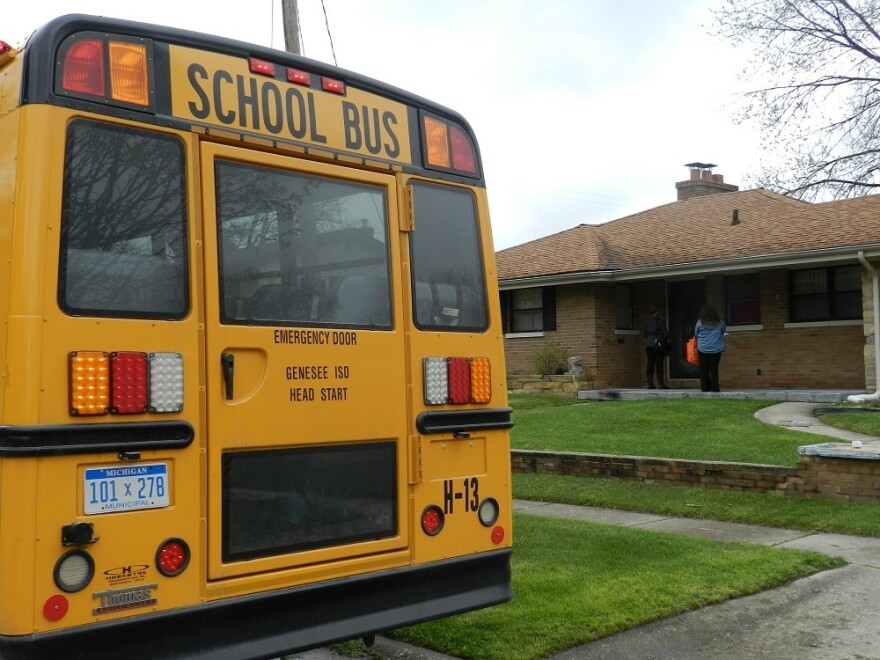Thousands of children in Flint, Mich., have been exposed to high levels of lead in their drinking water, creating problems that could last a lifetime.
A new effort is trying to help those most at risk.
For weeks, teachers and other volunteers from the Genesee Intermediate School District have been knocking on doors in Flint, trying to recruit kids for early childhood education programs that are critical for the youngest victims of Flint's lead-tainted tap water.
For children younger than age 6, exposure to lead can have profound effects, ranging from behavioral problems to a lower IQ.
Dr. Mona Hanna Attisha heads the pediatrics program at Flint's Hurley Medical Center. Her research shows elevated lead levels in the blood of Flint children since the city's pipes were damaged by improperly treated water starting in 2014.
But early education can mitigate these effects, she says, by stimulating young children's minds and helping them learn to focus.
"In Flint, these children need these things now. They need these things two years ago, because we're going on our third year in this crisis. And we've already missed two years of critical brain development where these interventions could make the greatest impact," she says.

On a recent day, a group of 3- and 4-year-olds learns the alphabet at one of seven new early childhood education classes. In March, the Department of Health and Human Services announced it would expand its Head Start program in Flint with $3.6 million in one-time funding.
Lauren Chom, interim director for early childhood programs with the Genesee Intermediate School District, says about half of the 4,000 students enrolled in this countywide early childhood program live in Flint.
Many Flint children faced developmental obstacles even before their tap water was tainted with lead, Chom says.
"What we know is that the majority of the children in the community start out behind," she says. "When we do our baseline assessments of children, we have many children who start out below the national expectations in most of the objectives."
Before the water crisis, Chom says, the focus was to bring those children up to the normal level of development. The water crisis simply makes that harder to do.
Mott Community College in Flint trains many of the teachers who work with the city's preschoolers.
Sue Lechota runs the early child learning center at Mott. She says it's not just about preparing teachers.
"You can have as many strategies and as much skill as you can get, but when you're out in the field, you really need funding for the kind of support they're going to need in a classroom," Lechota says.
Education officials are hoping that lawmakers will approve more funding — not only for sorely needed early childhood education, but for Flint children as they become school age and try to keep up.
Copyright 2020 Michigan Radio. To see more, visit Michigan Radio. 9(MDAxMzY2MjQ0MDEyMzcyMDQ5MzBhZWU5NA001))



